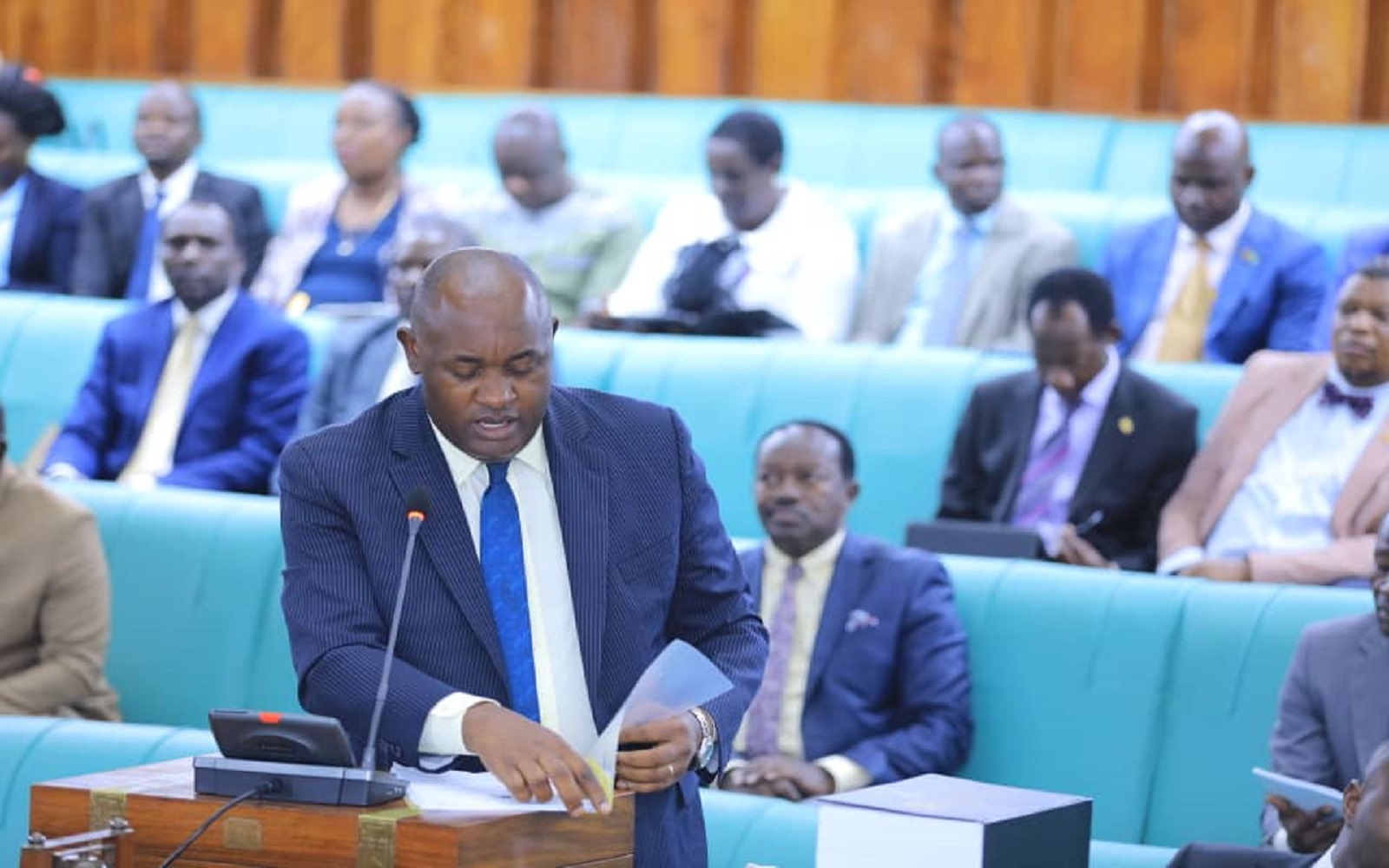KAMPALA, November 27, 2024 — The Minister for Information, Communication, Technology and National Guidance, Chris Baryomunsi has unveiled government plans to extend internet connectivity to all sub-counties in the country through a loan acquired from the Exim Bank of China.
Baryomunsi said that with the US$ 150 million, government will go beyond its ministries, departments, agencies [MDAs] and district headquarters) to connect all sub-counties to the National Backbone Infrastructure [NBI].
“This is vital for ensuring that all regions benefit from the digital economy. Last mile connectivity, the final segment connecting the NBI to end-users is essential in achieving comprehensive access to e-Government services,” Baryomunsi said.
Baryomunsi made this revelation as he presented a statement on the two projects under the ministry aimed at increasing internet connectivity through construction of optical fiber cables and accelerating electronic systems in government entities.
This was revealed during the sitting of the House chaired by Speaker of Parliament, Anita Among on Tuesday.
The 2022 Uganda Digital Acceleration Project [UDAP] is funded by the World Bank to a tune of US$ 200mln of which US$ 60mln is a grant, whereas Phase V of National Backbone Infrastructure (NBI) project commissioned in 2023 is funded by the Exim Bank of China at a cost of US$ 150mln.
Baryomunsi told MPs that government has so far covered a total distance of 4,298.87 kilometres of optical fiber cable with the NBI connecting 1,567 MDAs, hospitals, districts and other target groups to high speed internet.
Under the UDAP Project, government plans to extend optical fiber cable to cover an additional 63 districts, build 21 transmission sites and extend last mile connectivity to 2,800 sites across the country.
The Minister said there is increased access to electronic government services such as Integrated Financial Management Services [IFMS], e-government Procurement system [e-GP], e-Passport, e-visa, Health Management Information System [HMIS], Education Management Information System [EDMIS], and Parish Development Model Online system [PDMIS].
“Government has witnessed a significant increase in the adoption and use of e-services which has increased efficiency within government and improved public service delivery to citizens. We will benefit from additional economies of scale and bring the cost of internet bandwidth further down,” Baryomunsi said.
Parliament learnt that at least 10 major border points of Uganda with its neighbouring countries have been connected to enhance access to services such as customs clearance, immigration and e-Visa applications which has eased communication.
Value of over 800 Wi-Fi hotspots
“I want the minister to look for MyUg Wi-Fi hotspot and see if it connects, it is not working yet it is one of the hotspots meant to serve urban centres,” said Kalangala District Woman MP, Helen Nakimuli.
Nakimuli commended government for its plans to extend internet infrastructure to the island districts which she said currently have bad network.
She asked government to ensure coordination among the ministries in charge of road construction and ICT to ensure that installation of internet cables and masts is coherent.
Dickens Kateshumba, Sheema Municipality asked the minister to consider tracking the impact of the two projects, saying increased internet connectivity should translate into increased production among other development indicators.
“You have indicated in one of your loans, 47 per cent has been spent but your statement is largely a procurement activity. As Parliament, we would be interested in the impact in terms of access, affordability and the benefits on which the loans were premised,” Kateshumba said.
https://thecooperator.news/ony13-percent-of-ugandans-use-internet-for-business-report/
Buy your copy of thecooperator magazine from one of our country-wide vending points or an e-copy on emag.thecooperator.news
